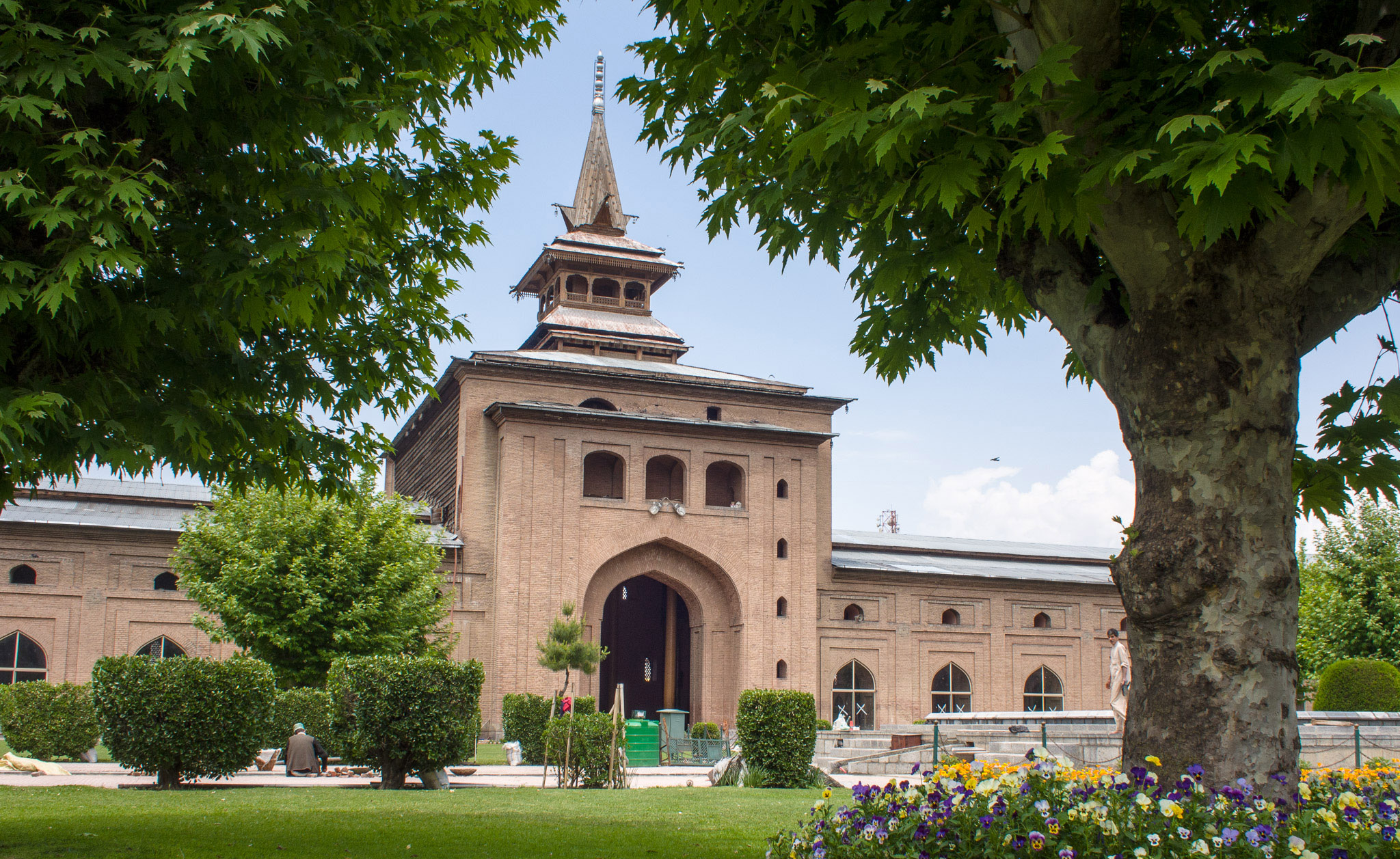SRINAGAR, Apr 14: The local authorities disallowed the congregational prayer on ‘Jumma-tul-Vida’ — marking the last Friday of Ramzan — at the Jamia Masjid here, the grand mosque’s managing body said.
Anjuman Auqaf Jamia Masjid — the managing body of the mosque located in the city’s Nowhatta area — said in a statement that the district magistrate and police officials visited the shrine on Friday morning and asked the management to lock the gates as “the administration had decided that ‘Jumma-tul-Vida’ prayers will not be allowed at the mosque”.
“The Auqaf strongly resents this move of the authorities causing great distress to lakhs of Muslims, who traditionally come from all parts of the Valley to offer prayers on the last and greatly blessed Friday of Ramzan in Jamia Masjid where offering prayers on (the) last Friday has great significance,” the statement said.
National Conference (NC) president Farooq Abdullah also expressed regret over the disallowing of the congregational prayers at the Jamia Masjid here.
“I regret this,” Abdullah told reporters at the Hazratbal Shrine here when asked about the administration’s decision to disallow the congregational prayers on the occasion of the Jumma-tul-Vida.
“If the situation is good, then why the prayers were not allowed at Jamia Masjid?” Abdullah, the Lok Sabha MP from Srinagar, questioned.
Last month, the authorities disallowed the ‘Shab-e-Barat’ congregational prayers at the mosque.
Reacting sharply to the development, former Jammu and Kashmir chief minister Omar Abdullah said the administration was betraying its own claims of normality in the Valley by locking the gates of the grand mosque.
“We are constantly treated to claims of normalcy in J&K and yet the administration betrays its own claims when it resorts to locking up one of our holiest mosques thus denying people the chance to offer prayers on the last Friday of Ramzan,” Abdullah, the National Conference vice president, wrote on Twitter.
Meanwhile, Hurriyat Conference said the closure of the mosque “belied” the government’s claim of normalcy in J-K.
“The prolonged house arrest of chairman and Mirwaiz of Kashmir Mohammad Umar Farooq since August 2019, even in the holy month of Ramzan despite appeals from all quarters for his release, barring him from his religious obligations as the Mirwaiz is greatly regrettable. It defies the authorities claim that ‘all is well now’ in Naya Kashmir,” the Hurriyat said in a statement here.
The separatist amalgam said the repeated closure of the historic and central Jamia Masjid Srinagar by the authorities also belies these claims.
“Not allowing Jumma-tul-Vida prayers at the historic mosque on such an important religious day when lakhs of ‘namazis’ from all over the valley traditionally pray at the Masjid for its great religious significance, is condemnable,” it said.
The Hurriyat termed it as “a direct violation of people’s fundamental right to practice their religion”.
“Such measures are a reminder that things on the ground in Kashmir are not what is being propagated to (the) outside world by strictly controlled narrative and huge number of forces on the ground,” the Hurriyat said.
The NC president also demanded Mirwaiz’s release from house detention.
“Mirwaiz Umar Farooq is still in house detention. The time has come, when they say the situation is right, that he should be released so that he offers Namaz and preaches to the people,” he said.
Abdullah said it is important as the situation is such that today we have forgotten God, and have left the right path.
“So, it is important that he (Mirwaiz) comes and preaches to the people and prays for all of us so that we tread the right path,” the former Union minister, said.
Meanwhile, Muslims in Kashmir offered Jumma-tul-Vida prayers — the last Friday of Ramzan — with the biggest congregation was held at Hazratbal Shrine, on the banks of Dal Lake, which houses a relic of Prophet Mohammad.
Devotees from different parts of the valley prayed at the shrine and were preached about the importance of the day and the month of Ramzan.
The preachers highlighted the social evils prevalent in the society and asked the people to desist from such evils like drug addiction. (Agencies)


